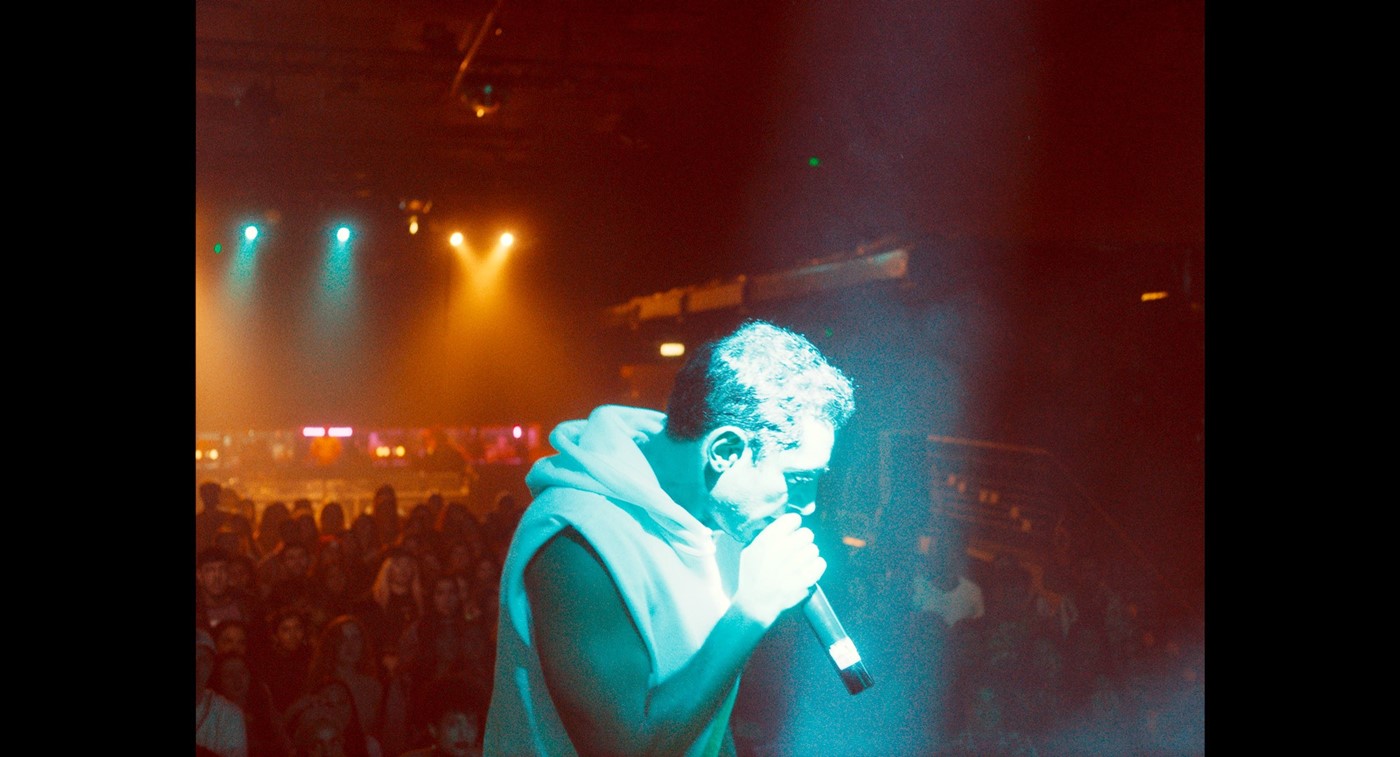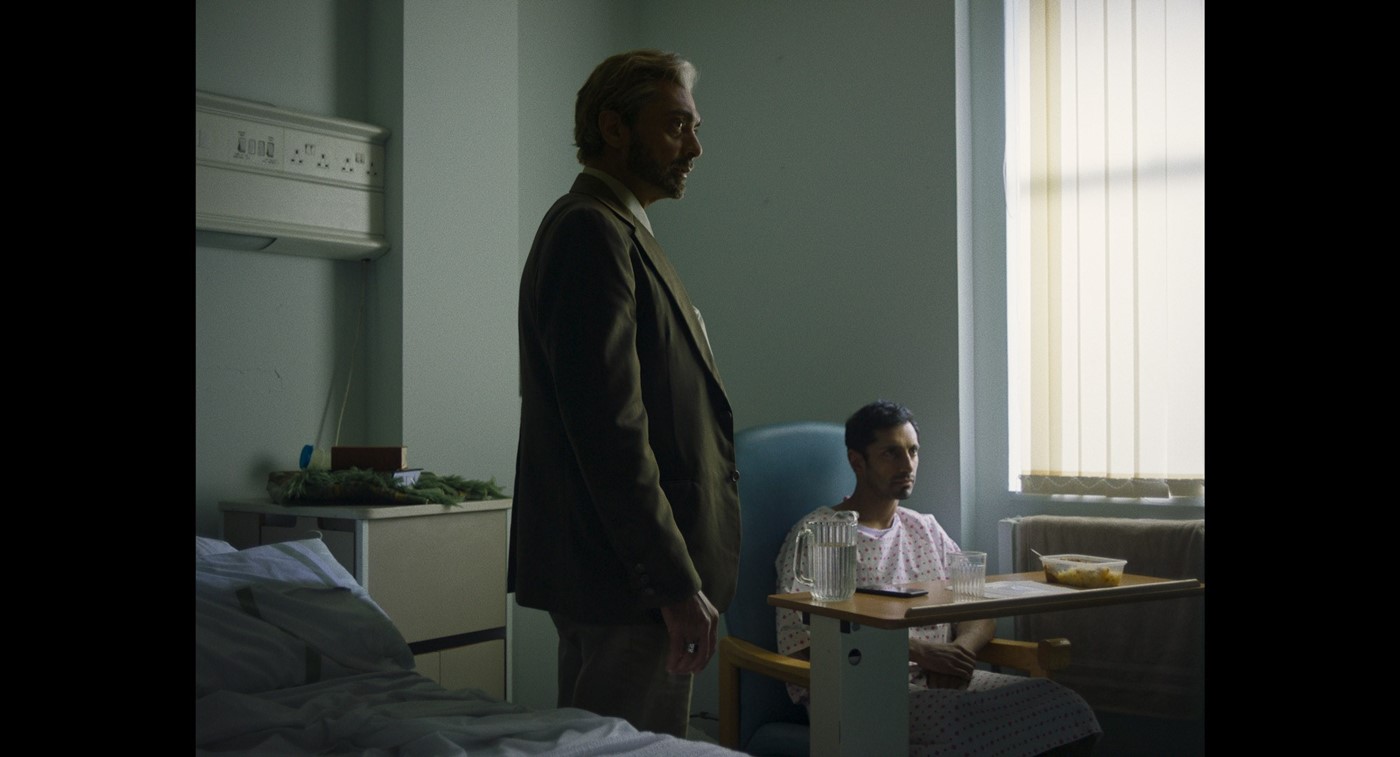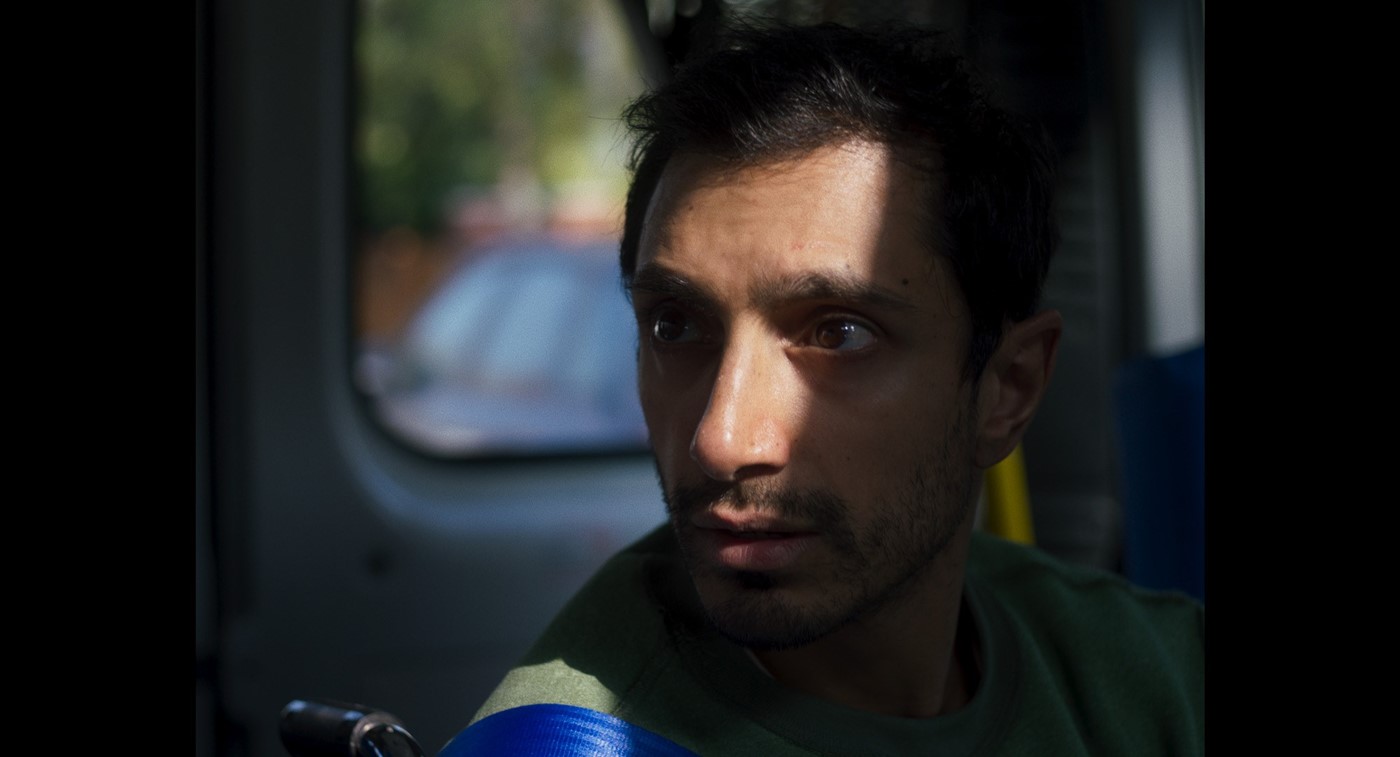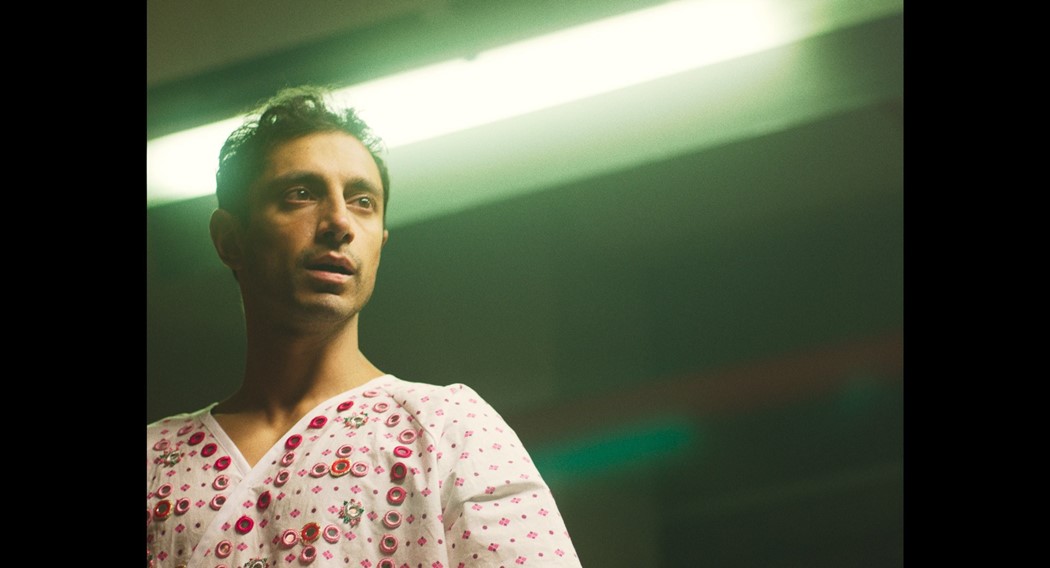Riz Ahmed on His Unapologetically Brown Film, Mogul Mowgli
In Mogul Mowgli, which just had its world premiere at the Berlinale, actor-writer-rapper Riz Ahmed explores ancestral trauma, a molecular identity crisis and Pakistan’s disco-Islam aesthetic
The first time Riz Ahmed attended the Berlinale was in 2006, for a starring role in his debut feature, The Road to Guantánamo. He delivered a visceral and agonising turn as Shafiq Rasul, one of the illegally imprisoned and tortured childhood friends known as the ‘Tipton Three’ in Michael Winterbottom’s harrowing docu-fiction film. It was critically lauded and even took home the Silver Bear for Best Director, but Ahmed’s overjoyed homebound journey quickly soured when intelligence officers at Luton Airport detained and threatened him and his co-stars under the prevention of terrorism act.
“Did you become an actor to further the Muslim struggle?” They demanded that Ahmed and cast mates entertain their half-baked line of questioning, on the basis that their passports had all the trappings of what he’s since dubbed an “Axis of Evil world tour” (i.e. shooting the film in Pakistan, Iran and Afghanistan). In his essay Typecast as a Terrorist, published a full decade later in The Guardian, Ahmed underscored the tragic irony of the situation, which hadn’t even registered to airport security: “the illegal detention of the actors from a film about illegal detention”.
Zaheer, Brian or Dave
Fast-forward 14 years later: the Oxford graduate, award-winning actor, rapper (as Riz MC, of the Swet Shop Boys) and activist is back at the Berlinale, an event with an incredible track record of films “that speak to the experience of a no man’s land”, Ahmed tells me when we sit down in the festival’s press lounge to discuss his latest project, Mogul Mowgli. The multifaceted actor has always been unapologetic about calling out the lack of representation on screen – he’s even pointed to an aspired ‘Promised Land’, in which he could portray characters named Brian or Dave, whose back stories wouldn’t in any way be related to their race. Mogul Mowgli, which he stars in and co-wrote with first-time narrative director Bassam Tariq, is not such a film. It’s rather an exuberant and heartrending meditation on what it means to be a 21st-century British-Pakistani Muslim musician.
Touching on transnational identity, ancestral trauma and the selfish pursuit of love and validation from strangers instead of family, Mogul Mowgli acquaints us with Zaheer/Zed (Ahmed), a preternaturally driven and feverishly fidgety British-Pakistani rapper on the cusp of launching his inaugural world tour, when a crippling autoimmune disease strikes him down and finds him caught between his family’s more conservative traditions and the blindingly bright lights of global showbiz. “A lot of us don’t know who we are,” Ahmed explains, as he launches into the reasoning behind the film’s title, which is also borrowed from a Swet Shop Boys song. “On the one hand, we have this rich heritage – during the Mogul empire, India made up 25 per cent of the world’s GDP, it was the global superpower. We come from this rich lineage but our contemporary reality is one more like Mowgli. We’ve been plucked from the place we belong to roam a modern urban jungle in the West.”

Acing the Riz Test
Since his Berlinale baptism, Ahmed has achieved what until recently appeared depressingly out of reach for actors who look like him: a career built solely by stacking up complex, stereotype-busting roles, while also channelling his industry renown to affect change (he actually inspired something called the ‘The Riz Test’, which scores Muslim representation in pop culture). His leading-man mug has been splashed across the cover of Time, plugged into the Marvel universe and the Star Wars empire. He’s won plaudits for his memorable surfer-dude turn on Girls and a game-changing Emmy (the first for both a Muslim actor and one of South Asian descent) for HBO’s The Night Of. Through it all, he’s consistently been asked for selfies by airport security swabbing him for explosives, and has channelled some of that anger and disbelief into music he describes as “a middle finger you can dance to”, including a bombshell rap song inspired by that Luton Airport episode entitled Post 9/11 Blues.
Ahmed and his American-Pakistani partner-in-crime Tariq initially set out on a fact-finding trip to the motherland to draw from a deeply personal well of Pakistani traditions and channel what they describe as the country’s “disco-Islam aesthetic” (think Sufi shrines and poetry, Qawwali music and rose petal garlands) into this “unapologetically brown film”. This comes across most vividly when the bedridden Zed is haunted by hallucinations of his family’s horrific experiences during the 1947 Partition. His subconscious is stalked by the mysterious presence of Toba Tek Singh – an iconic character from Pakistani/Indian literature, whose identity springs from the rupture between East and West, outfitted in a face veil and rose garlands galore.

Molecular Identity Crisis
Ahmed aggressively shed pounds during the shoot – some ten kilos in about three weeks – to convincingly portray the debilitating toll this autoimmune disorder takes on Zed’s already slender build. What’s all the more fascinating is the research Ahmed and Tariq carried out on autoimmune conditions, and their correlation with diaspora populations. “An autoimmune condition is the body attacking itself because it doesn’t recognise itself,” breaks down Ahmed. “So it’s this kind of identity crisis playing out on a molecular level. We thought that would be a really powerful metaphor and reason to stop this character in his ambitious tracks, force him to confront who he is and ask: well, am I enough as I am?”
Ahmed refers to the project as the most liberating ‘thing’ he’s ever put out into the world – the result of “live-therapy” sessions between Ahmed and Tariq about their curiosities, confusion and aspirations as artists from a certain background part of a larger social context. “Like Scorsese said recently, some of the best works are personal,” considers Ahmed. “And I really feel as though I went to places in this performance that I haven’t gone before.”

Toni Morrison to the Rescue
Both Tariq and Ahmed speak of the project as one they did for themselves first and foremost, with no intention of handholding outsider audiences or translating every last culturally specific detail. “An unapologetic portrayal of the beautiful mess that is people like us,” Ahmed proclaimed to the enthused crowd who’d gathered for the Berlinale premiere at the Zoo Palast. The morning we meet, I can’t help but think back to this comment as I pore over a review of the film that dismisses its focus on a certain Sikh figure, arguing it would not resonate with viewers “outside the South Asian community”. I wonder whether that’s true (after all, I’m an outsider who was nevertheless mesmerised by the character) and how such a comment might just encourage readers to keep making sense of the world through the same lens. I bring this up with Ahmed.
“I saw that. It’s interesting, isn’t it?” he ponders, turning to Tariq for a reaction. “Toni Morrison would often talk about this. People would review her work and say: ‘she is such an incredible writer, but her talent is wasted on telling stories of black people. When is she going to tell ‘universal’ stories that everyone can relate to?’ And I was sent an old quote of hers the other day that basically said: ‘behind this question is the suggestion that to write for black people is somehow to diminish the writing. From my perspective there are only black people. When I say people, that’s what I mean.’ I’d say the same holds true with our film.”
Mogul Mowgli’s final screening at the Berlinale took place on February 29, 2020.












